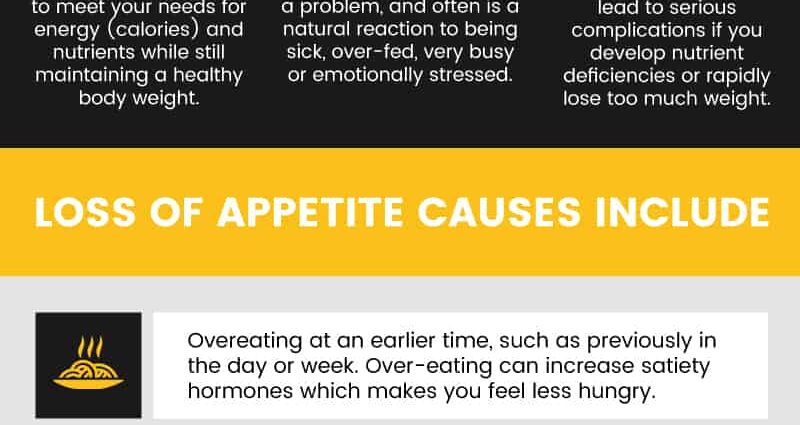Contents
A good appetite is a sign of good health. While the lack of hunger can lead to various problems, including anorexia. If you don’t feel like eating for more than a few days in a row, it’s time to start thinking about how to increase your appetite.
How to increase appetite in folk ways
How to Increase Bad Appetite: Helpful Tips
Loss of appetite can be caused by stress and other problems. Feeding yourself through force is not worth it. You need to solve the problem and make your body ask for food again.
There are little tricks that will make your body want to eat:
Eat small meals often. Our stomach accepts food in small volumes much better.
Drink plenty of clean water, up to 2 liters per day. One of the most common causes of loss of appetite is dehydration. Remember to drink water before you start to feel thirsty. Thirst is a signal that your body is already dehydrated.
Prepare delicious and beautiful food. Don’t ignore the correct presentation of the dishes, even if you are eating alone.
Use all kinds of spices and seasonings. They are great for promoting appetite.
Eat at the same time. Don’t kill your appetite with unhealthy snacks like candy and buns.
Drink vitamins, especially during the fall and winter.
Stop smoking. Addiction to tobacco suppresses appetite.
Lead an active lifestyle, play sports and take long walks outside.
No wonder the people say “to work up an appetite.”
How to increase appetite in an adult: folk recipes
Certain herbal preparations can improve appetite. Plants with bright flavors are among the appetite stimulants. Here are some recipes for a good appetite:
1 tsp dry wormwood pour 1 tbsp. boiling water. Let it brew. Take 1 tbsp. l. three times a day before meals.
Fresh 4 carrots and a bunch of watercress. Drink the resulting drink once a day, half an hour before meals.
Drink 1 tsp three times a day before meals. aloe juice. To make it not so bitter, you can add a little honey to it.
Mix wormwood, dandelions, yarrow and willow bark in a 1: 1: 1: 2 ratio. Take 1 tbsp. l. the resulting mixture and fill it with 1,5 tbsp. boiling water. Let it brew for half an hour. Take half a glass three times a day 20 minutes before meals.
Appetite is stimulated by fresh vegetable juices and dry red wine. Wine should not be overused, but 50 ml of this noble drink 15 minutes before meals will significantly increase your appetite.
If you follow all of the above tips, but your appetite does not return, see your doctor.
Perhaps your body is trying to tell you about some kind of illness and therefore refuses to eat.
– First you need to understand cause this bad appetite. There can be many of them: this is hormonal imbalance, problems with the organs of the digestive system (gastritis, pancreatitis, liver failure, etc.), renal or heart failure, oncology, psychological factors (stress, depression).
First of all, it is necessary to exclude health problems and understand if there are any concomitant diseases, so that later you can turn to a narrow specialist. For example, if a woman has problems with the cycle and with appetite, then it is likely that this problem should be addressed to a gynecologist. If a person has pain or heaviness in the stomach after eating, belching and other symptoms, then it is worth contacting a gastroenterologist. Long-term deficiency of thyroid hormones in the blood slows down metabolism and leads to a decrease in hunger, then consultation of an endocrinologist is important.
From general recommendations: to do a general analysis and biochemical blood test, find out the level of thyroid hormones, undergo an ultrasound scan of internal organs, do a gastroscopy and, in some cases, a colonoscopy.
A decrease in appetite to its complete absence can be a manifestation of mental illness or the influence of various psychological conditions, for example, depression, insomnia, apathy, fatigue… A condition such as anxiety can trigger the central nervous system to release stress hormones that slow digestion and reduce appetite. In such cases, it is necessary to identify the problem and understand its causes with a psychologist, if necessary, get the correct drug treatment from a psychiatrist.
If all of the above problems do not exist, and a person just refuses to eat, then most likely there may be individual characteristics and preferences for the taste and smell of food, perhaps he simply chooses the food that does not suit him / her, so you just need to experiment with the diet.










